




[Watch TEASER TRAILER]
[Watch FILM]
[Poster]
[Full Synopsis]
[Script]
[Stills and Gifs]
[Inspiration Corner]
[Don't click on this!]
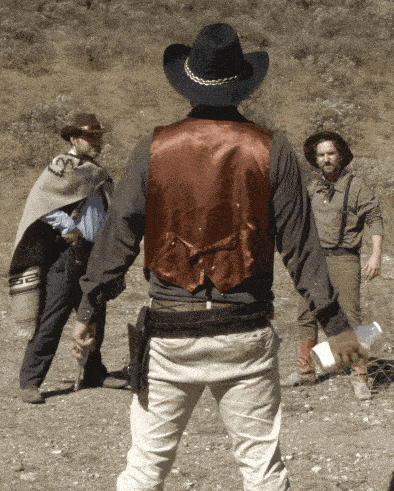
A newcomer comes to town and soon becomes involved in a miner’s struggle to keep his land from a slimy habanero-shooting train tycoon.


CHARACTERS
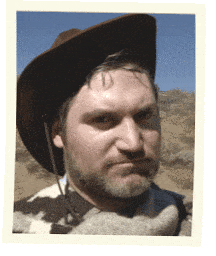
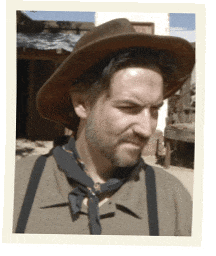
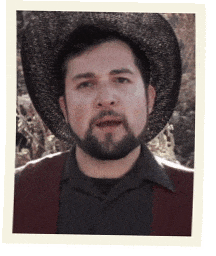
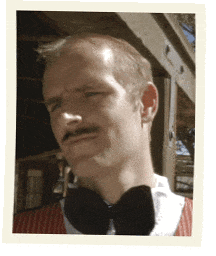
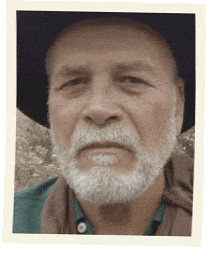
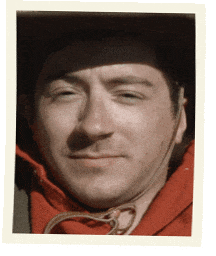
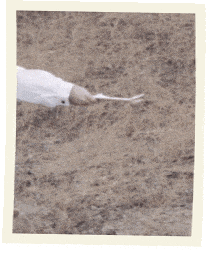


NEWS
JANUARY 14 2020 - YEEHAWBANERO is available on the streaming platform Great American Westerns!
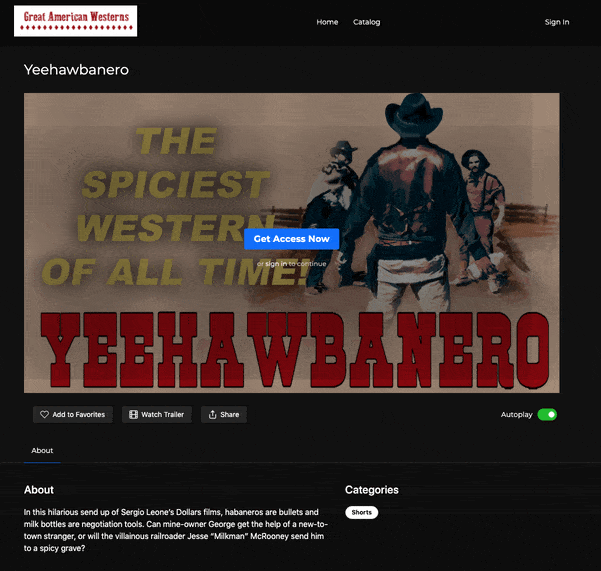
OCTOBER 1 2019 - YEEHAWBANERO has now been selected to show at The Billy The Kid Film Festival in Hico, Texas. This is Yeehawbanero's fourth selection. Previously we have also won Best Western Comedy Short at The Wild Bunch Film Festival and Best Comedy at the Sunnyside Up Film Festival.


FILM HISTORY
Director Statement
It is a long-expressed maxim in the world of creative works that you write what you know. Less heard is the equally-true saying “write what you love.”
After spoofing one iconic director’s 1960’s outings, it is no surprise that we jumped over to another’s; the ones with the ponchoed, gruff traveler, the exaggerated shots, and some of the most iconic film music of all time: the films of Sergio Leone. With equal parts admiration and sillyness, we set our eyes on the west and went to work.
The script was written between work shifts and on weekends during late summer, totaling 11 pages. For the cast, we would need to assemble our old college chums for the various parts, who we knew were reliable and good actors. Production started on September 10, 2017, with the opening shot being the first thing filmed. The bulk of the film was filmed later, on location at Pioneer Town on October 16, and in a ditch in La Verne, October 17. Pick up shots were filmed right up the last minute. Through some midnight oil burning (and a few beers) the editing process was completed. The film was finished, and released, on schedule, on October 31, 2017.
Through the process, we had achieved our goal of releasing a movie every Halloween, as well as creating something we were proud of. Equal parts love letter, spoof, and a stretching of our filmmaking prowess, Yeehawbanero set for us a new benchmark on complexity of story and style. Armed with a confidence worthy of the man with no name, we’re ready and eager for our next big production.
College Roots
Every single person who worked on the film, save Daniel Holmes Lujan, is a graduate of. California State University Monterey Bay’s Cinematic Arts and Technology (CAT) program (even a character’s name in the film, Mark Janiak, is lovingly named after a fellow CAT graduate). Daniel Holmes Lujan, the sole outlier, is a father of one of the graduates.
Compositing
Even though this film is a love-letter to 60's cinema, modern technology helped relieve a continuity error. During the shoot-out, when the Milkman drops the milk bottle, actor Ralph Blanchard wasn't actually holding anything. To correct this, a milk bottle was dropped on a pillow in front of a green screen. With some compositing magic, the bottle and the source footage came together to complete the final shot.
Aspect Ratio
To make sure the film had the same epic feel as the Leone westerns, the directors made sure to shoot the film in the same aspect ratio of 2.35:1, quite an usual choice for comedies.
Last shot Trivia
The last epic shot of the film was filmed near Pioneer Town off the side of the highway.
Location
A western just isn’t a western without a western town! The filmmakers knew this would really sell the film, and had their sights set on a prominent, legendary western town location used in the industry for decades. Unfortunately, the location fell through six days before the shoot date. A desperate plea to Pioneer Town, 135 miles east of homebase Hawthorne, CA, was sent. After an initial offer that didn’t fit within the budget, a hail-mary pass was thrown, and Pioneer Town agreed to 100 dollars and hour, and became a savior for the film’s visuals and production value. All scenes taking place in the western town were filmed in four hours
Look & Sound!
In order to emulate the look and style of the Leone westerns, the filmmakers decided to dub all the dialogue in post-production. Since Leone often used actors who did not speak English, they delivered their lines in their native tongues. When dubbing into English, most often the words would not match the actors’ mouth movements. This is just the look the filmmakers wanted to create. Three of the actors in featured in Yeehawbanero could speak a language other than English, and on set languages included Dutch, German, and Spanish. All lines were re-recorded over chips and beers and put into the film during post-production.

